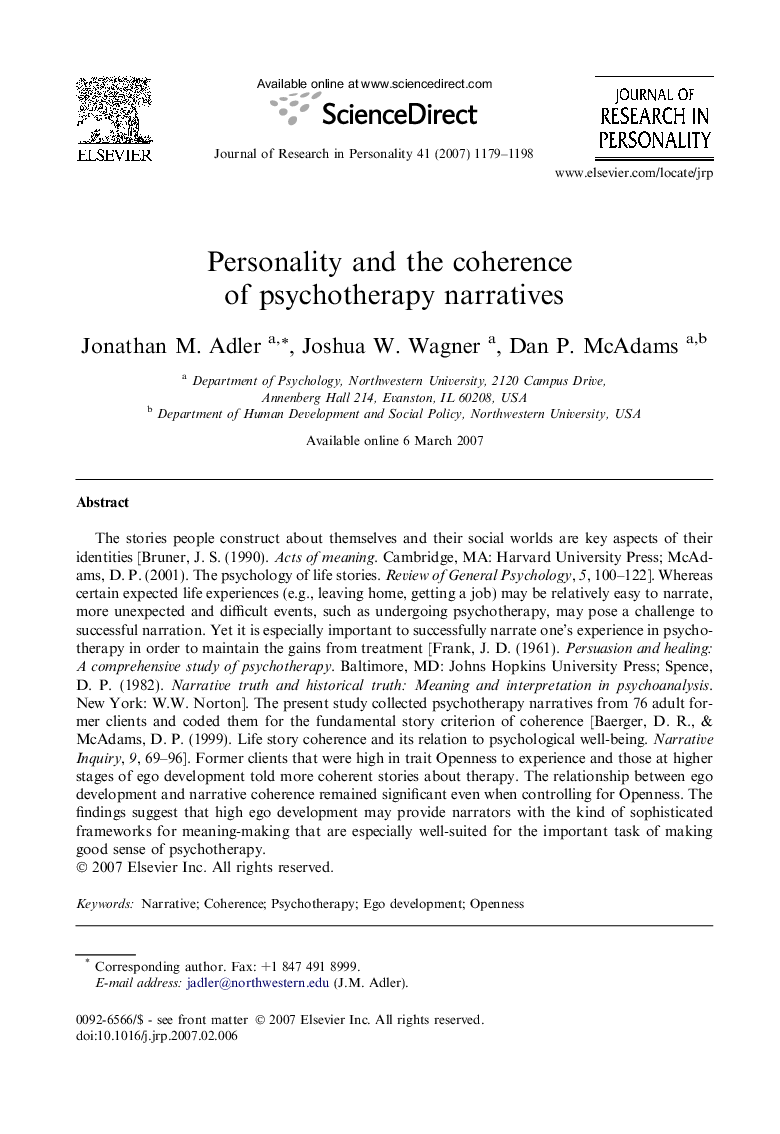| Article ID | Journal | Published Year | Pages | File Type |
|---|---|---|---|---|
| 951938 | Journal of Research in Personality | 2007 | 20 Pages |
The stories people construct about themselves and their social worlds are key aspects of their identities [Bruner, J. S. (1990). Acts of meaning. Cambridge, MA: Harvard University Press; McAdams, D. P. (2001). The psychology of life stories. Review of General Psychology, 5, 100–122]. Whereas certain expected life experiences (e.g., leaving home, getting a job) may be relatively easy to narrate, more unexpected and difficult events, such as undergoing psychotherapy, may pose a challenge to successful narration. Yet it is especially important to successfully narrate one’s experience in psychotherapy in order to maintain the gains from treatment [Frank, J. D. (1961). Persuasion and healing: A comprehensive study of psychotherapy. Baltimore, MD: Johns Hopkins University Press; Spence, D. P. (1982). Narrative truth and historical truth: Meaning and interpretation in psychoanalysis. New York: W.W. Norton]. The present study collected psychotherapy narratives from 76 adult former clients and coded them for the fundamental story criterion of coherence [Baerger, D. R., & McAdams, D. P. (1999). Life story coherence and its relation to psychological well-being. Narrative Inquiry, 9, 69–96]. Former clients that were high in trait Openness to experience and those at higher stages of ego development told more coherent stories about therapy. The relationship between ego development and narrative coherence remained significant even when controlling for Openness. The findings suggest that high ego development may provide narrators with the kind of sophisticated frameworks for meaning-making that are especially well-suited for the important task of making good sense of psychotherapy.
